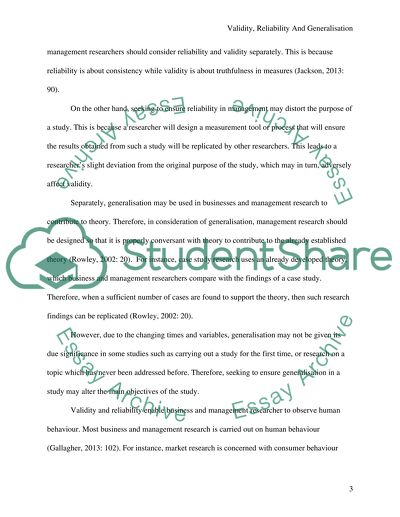Cite this document
(“Validity, reliability and generalisation in the research process Essay”, n.d.)
Retrieved from https://studentshare.org/human-resources/1628346-validity-reliability-and-generalisation-in-the-research-process
Retrieved from https://studentshare.org/human-resources/1628346-validity-reliability-and-generalisation-in-the-research-process
(Validity, Reliability and Generalisation in the Research Process Essay)
https://studentshare.org/human-resources/1628346-validity-reliability-and-generalisation-in-the-research-process.
https://studentshare.org/human-resources/1628346-validity-reliability-and-generalisation-in-the-research-process.
“Validity, Reliability and Generalisation in the Research Process Essay”, n.d. https://studentshare.org/human-resources/1628346-validity-reliability-and-generalisation-in-the-research-process.


